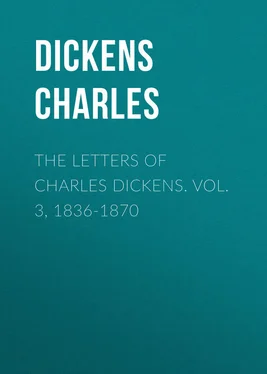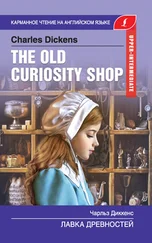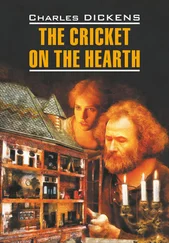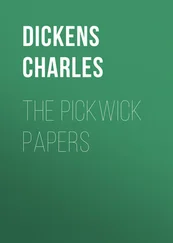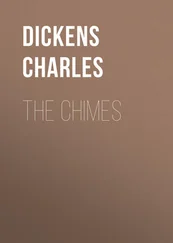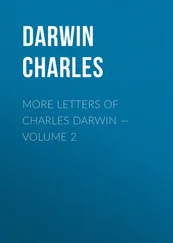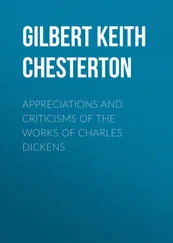Чарльз Диккенс - The Letters of Charles Dickens. Vol. 3, 1836-1870
Здесь есть возможность читать онлайн «Чарльз Диккенс - The Letters of Charles Dickens. Vol. 3, 1836-1870» — ознакомительный отрывок электронной книги совершенно бесплатно, а после прочтения отрывка купить полную версию. В некоторых случаях можно слушать аудио, скачать через торрент в формате fb2 и присутствует краткое содержание. Жанр: foreign_antique, foreign_prose, на английском языке. Описание произведения, (предисловие) а так же отзывы посетителей доступны на портале библиотеки ЛибКат.
- Название:The Letters of Charles Dickens. Vol. 3, 1836-1870
- Автор:
- Жанр:
- Год:неизвестен
- ISBN:нет данных
- Рейтинг книги:4 / 5. Голосов: 1
-
Избранное:Добавить в избранное
- Отзывы:
-
Ваша оценка:
- 80
- 1
- 2
- 3
- 4
- 5
The Letters of Charles Dickens. Vol. 3, 1836-1870: краткое содержание, описание и аннотация
Предлагаем к чтению аннотацию, описание, краткое содержание или предисловие (зависит от того, что написал сам автор книги «The Letters of Charles Dickens. Vol. 3, 1836-1870»). Если вы не нашли необходимую информацию о книге — напишите в комментариях, мы постараемся отыскать её.
The Letters of Charles Dickens. Vol. 3, 1836-1870 — читать онлайн ознакомительный отрывок
Ниже представлен текст книги, разбитый по страницам. Система сохранения места последней прочитанной страницы, позволяет с удобством читать онлайн бесплатно книгу «The Letters of Charles Dickens. Vol. 3, 1836-1870», без необходимости каждый раз заново искать на чём Вы остановились. Поставьте закладку, и сможете в любой момент перейти на страницу, на которой закончили чтение.
Интервал:
Закладка:
My dear Hood,
I can't state in figures (not very well remembering how to get beyond a million) the number of candidates for the Sanatorium matronship, but if you will ask your little boy to trace figures in the beds of your garden, beginning at the front wall, going down to the cricket-ground, coming back to the wall again, and "carrying over" to the next door, and will then set a skilful accountant to add up the whole, the product, as the Tutor's Assistants say, will give you the amount required. I have pledged myself (being assured of her capability) to support a near relation of Miss E – 's; otherwise, I need not say how glad I should have been to forward any wish of yours.
Very faithfully yours.1843
19 19 This, and all other Letters addressed to Mr. Macvey Napier, were printed in "Selection from the Correspondence of the late Macvey Napier, Esq.," editor of The Edinburgh Review , edited by his son Macvey Napier.Devonshire Terrace, London, January 21st, 1843.
My dear Sir,
Let me hasten to say, in the fullest and most explicit manner, that you have acted a most honourable, open, fair and manly part in the matter of my complaint, 20 20 His complaint was that the reviewer of his "American Notes," in the number for January, 1843, had represented him as having gone to America as a missionary in the cause of international copyright – an allegation which Charles Dickens repudiated, and which was rectified in the way he himself suggested.
for which I beg you to accept my best thanks, and the assurance of my friendship and regard. I would on no account publish the letter you have sent me for that purpose, as I conceive that by doing so, I should not reciprocate the spirit in which you have written to me privately. But if you should, upon consideration, think it not inexpedient to set the Review right in regard to this point of fact, by a note in the next number, I should be glad to see it there.
In reference to the article itself, it did, by repeating this statement, hurt my feelings excessively; and is, in this respect, I still conceive, most unworthy of its author. I am at a loss to divine who its author is. I know he read in some cut-throat American paper, this and other monstrous statements, which I could at any time have converted into sickening praise by the payment of some fifty dollars. I know that he is perfectly aware that his statement in the Review in corroboration of these lies, would be disseminated through the whole of the United States; and that my contradiction will never be heard of. And though I care very little for the opinion of any person who will set the statement of an American editor (almost invariably an atrocious scoundrel) against my character and conduct, such as they may be; still, my sense of justice does revolt from this most cavalier and careless exhibition of me to a whole people, as a traveller under false pretences, and a disappointed intriguer. The better the acquaintance with America, the more defenceless and more inexcusable such conduct is. For, I solemnly declare (and appeal to any man but the writer of this paper, who has travelled in that country, for confirmation of my statement) that the source from which he drew the "information" so recklessly put forth again in England, is infinitely more obscene, disgusting, and brutal than the very worst Sunday newspaper that has ever been printed in Great Britain. Conceive The Edinburgh Review quoting The Satirist , or The Man about Town , as an authority against a man with one grain of honour, or feather-weight of reputation.
With regard to yourself, let me say again that I thank you with all sincerity and heartiness, and fully acquit you of anything but kind and generous intentions towards me. In proof of which, I do assure you that I am even more desirous than before to write for the Review , and to find some topic which would at once please me and you.
Always faithfully yours.My dear Felton,
I don't know where to begin, but plunge headlong with a terrible splash into this letter, on the chance of turning up somewhere.
Hurrah! Up like a cork again, with The North American Review in my hand. Like you, my dear – , and I can say no more in praise of it, though I go on to the end of the sheet. You cannot think how much notice it has attracted here. Brougham called the other day, with the number (thinking I might not have seen it), and I being out at the time, he left a note, speaking of it, and of the writer, in terms that warmed my heart. Lord Ashburton (one of whose people wrote a notice in the Edinburgh which they have since publicly contradicted) also wrote to me about it in just the same strain. And many others have done the like.
I am in great health and spirits and powdering away at Chuzzlewit, with all manner of facetiousness rising up before me as I go on. As to news, I have really none, saving that – (who never took any exercise in his life) has been laid up with rheumatism for weeks past, but is now, I hope, getting better. My little captain, as I call him – he who took me out, I mean, and with whom I had that adventure of the cork soles – has been in London too, and seeing all the lions under my escort. Good heavens! I wish you could have seen certain other mahogany-faced men (also captains) who used to call here for him in the morning, and bear him off to docks and rivers and all sorts of queer places, whence he always returned late at night, with rum-and-water tear-drops in his eyes, and a complication of punchy smells in his mouth! He was better than a comedy to us, having marvellous ways of tying his pocket-handkerchief round his neck at dinner-time in a kind of jolly embarrassment, and then forgetting what he had done with it; also of singing songs to wrong tunes, and calling land objects by sea names, and never knowing what o'clock it was, but taking midnight for seven in the evening; with many other sailor oddities, all full of honesty, manliness, and good temper. We took him to Drury Lane Theatre to see "Much Ado About Nothing." But I never could find out what he meant by turning round, after he had watched the first two scenes with great attention, and inquiring "whether it was a Polish piece."..
On the 4th of April I am going to preside at a public dinner for the benefit of the printers; and if you were a guest at that table, wouldn't I smite you on the shoulder, harder than ever I rapped the well-beloved back of Washington Irving at the City Hotel in New York!
You were asking me – I love to say asking, as if we could talk together – about Maclise. He is such a discursive fellow, and so eccentric in his might, that on a mental review of his pictures I can hardly tell you of them as leading to any one strong purpose. But the annual Exhibition of the Royal Academy comes off in May, and then I will endeavour to give you some notion of him. He is a tremendous creature, and might do anything. But, like all tremendous creatures, he takes his own way, and flies off at unexpected breaches in the conventional wall.
You know H – 's Book, I daresay. Ah! I saw a scene of mingled comicality and seriousness at his funeral some weeks ago, which has choked me at dinner-time ever since. C – and I went as mourners; and as he lived, poor fellow, five miles out of town, I drove C – down. It was such a day as I hope, for the credit of nature, is seldom seen in any parts but these – muddy, foggy, wet, dark, cold, and unutterably wretched in every possible respect. Now, C – has enormous whiskers, which straggle all down his throat in such weather, and stick out in front of him, like a partially unravelled bird's-nest; so that he looks queer enough at the best, but when he is very wet, and in a state between jollity (he is always very jolly with me) and the deepest gravity (going to a funeral, you know), it is utterly impossible to resist him; especially as he makes the strangest remarks the mind of man can conceive, without any intention of being funny, but rather meaning to be philosophical. I really cried with an irresistible sense of his comicality all the way; but when he was dressed out in a black cloak and a very long black hat-band by an undertaker (who, as he whispered me with tears in his eyes – for he had known H – many years – was a "character, and he would like to sketch him"), I thought I should have been obliged to go away. However, we went into a little parlour where the funeral party was, and God knows it was miserable enough, for the widow and children were crying bitterly in one corner, and the other mourners – mere people of ceremony, who cared no more for the dead man than the hearse did – were talking quite coolly and carelessly together in another; and the contrast was as painful and distressing as anything I ever saw. There was an Independent clergyman present, with his bands on and a bible under his arm, who, as soon as we were seated, addressed – thus, in a loud emphatic voice: "Mr. C – , have you seen a paragraph respecting our departed friend, which has gone the round of the morning papers?" "Yes, sir," says C – , "I have," looking very hard at me the while, for he had told me with some pride coming down that it was his composition. "Oh!" said the clergyman. "Then you will agree with me, Mr. C – , that it is not only an insult to me, who am the servant of the Almighty, but an insult to the Almighty, whose servant I am." "How is that, sir?" said C – . "It is stated, Mr. C – , in that paragraph," says the minister, "that when Mr. H – failed in business as a bookseller, he was persuaded by me to try the pulpit; which is false, incorrect, unchristian, in a manner blasphemous, and in all respects contemptible. Let us pray." With which, my dear Felton, and in the same breath, I give you my word, he knelt down, as we all did, and began a very miserable jumble of an extemporary prayer. I was really penetrated with sorrow for the family, but when C – (upon his knees, and sobbing for the loss of an old friend) whispered me, "that if that wasn't a clergyman, and it wasn't a funeral, he'd have punched his head," I felt as if nothing but convulsions could possibly relieve me…
Читать дальшеИнтервал:
Закладка:
Похожие книги на «The Letters of Charles Dickens. Vol. 3, 1836-1870»
Представляем Вашему вниманию похожие книги на «The Letters of Charles Dickens. Vol. 3, 1836-1870» списком для выбора. Мы отобрали схожую по названию и смыслу литературу в надежде предоставить читателям больше вариантов отыскать новые, интересные, ещё непрочитанные произведения.
Обсуждение, отзывы о книге «The Letters of Charles Dickens. Vol. 3, 1836-1870» и просто собственные мнения читателей. Оставьте ваши комментарии, напишите, что Вы думаете о произведении, его смысле или главных героях. Укажите что конкретно понравилось, а что нет, и почему Вы так считаете.
